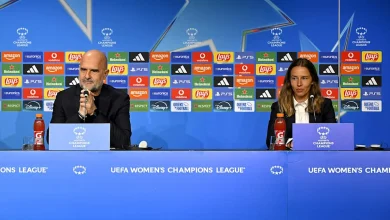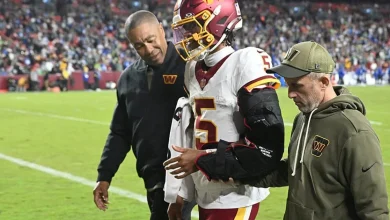The end of the David Kampf saga in Toronto, and the strange process that got us here

The David Kampf saga is finally reaching its conclusion.
Following a preseason in which he did not make the team, Kampf was sent down to the AHL Marlies, where he played four games before deciding enough was enough. Rather than playing out the remaining year and a half on his deal — he was set to earn over $3 million — Kampf and the Leafs reached an agreement to mutually terminate his contract, after which he will be free to sign with whatever team he wants.
This officially brings an end to Kampf’s tenure with the team, which spanned four full seasons following his initial signing by Kyle Dubas after he was left unqualified by the Chicago Blackhawks.
In those first two seasons in particular, Kampf played legitimately solid hockey for the club. He appeared in all 82 games both seasons, produced 26 and 27-point seasons, and averaged over 15 minutes per night each campaign. He even had a few decent playoff moments, recording five points in 18 playoff games overall.
Following Dubas’ dismissal, Brad Treliving arrived and promptly rewarded Kampf with a four-year deal worth $9.6 million in total. The deal was immediately scrutinized before the ink was even dry. We wrote at the time that it “felt a few hundred thousand above the ideal and a year or two too long” and speculated whether the Leafs should have gone with a cheaper internal solution in Pontus Holmberg (and yes, they should have).
Even still, Kampf, the player, was solid. He’s a dependable checking center who is decent in the faceoff circle and on the penalty kill. The Leafs could, in fact, use that type of center right now, especially given the injuries to Auston Matthews and Scott Laughton, even if those are short-term.
Where the contract became particularly complicated was the lack of a coherent plan for Kampf’s usage.
Kampf was stapled to Ryan Reaves, who was inked shortly after Kampf’s new deal. There was one scenario where Kampf was anchored by good, defensive two-way wingers on a line capable of eating minutes against opponents’ top-six units; in fact, during his first contract with the Leafs, Kampf, Ilya Mikheyev, and Pierre Engvall were quite effective as a trio. On a line with Ryan Reaves, it was never going to be a fit, and it played out exactly as expected. Best case scenario, it was an energy line, but we all remember when the unit of Dewar-Kampf-Reaves was trotted out immediately after the Leafs took the lead in Game 7 against Boston in 2024 and was promptly scored on.
When Craig Berube took over behind the bench, he effectively had no time for Kampf. The 12:24 per game he played under Berube was a career-low mark; Kampf became a regular healthy scratch as the season went on, and he appeared in just one of 13 playoff games. Berube clearly had no time for Kampf, and even when he played a few preseason games, he was centering players like Nick Robertson and Easton Cowan, a line with no identity that would never be a viable option in real NHL games.
Even with Laughton injured to start the 2025-26 season, Berube was happier to run Max Domi at 4C over Kampf (which carries some irony now, as Berube bemoans the team’s defensive struggles). Kampf could have been a better soldier about it and worked his way back from the Marlies, but it was clear that the head coach didn’t want him anywhere near the roster.
In terms of the salary cap implications, the Leafs escape without much issue. Kampf’s contract will be fully cleared off their books, opening up $1.25 million in space. Next summer, the full $2.4 million is now off the books.
The biggest downside is the opportunity cost of not using Kampf’s cap allotment elsewhere this past offseason. For example, if the Leafs simply slotted Holmberg in at 4C for 800K, they would have had an additional $1.6M available. That cap space is essentially the difference between signing Oliver Ekman-Larsson ($3.5M) and Nikita Zadorov ($5M), just as an example.
These types of deals tend to add up and are dismissed as nothing burgers, but as usual, every dollar counts in a hard-cap world, and every little decision up and down the lineup matters.
This is far from the worst-case scenario, and simply clearing Kampf’s contract off the books is a win, but the whole saga is a weird one, to put it nicely, and further questions the credibility of the management group. It was a lengthy and expensive deal, followed by a poor plan for the player (what on earth were the expectations for a Reaves-Kampf combo?!), and it had an opportunity cost attached to it. However, at least the Leafs were able to cut bait cleanly without further cap ramifications.




